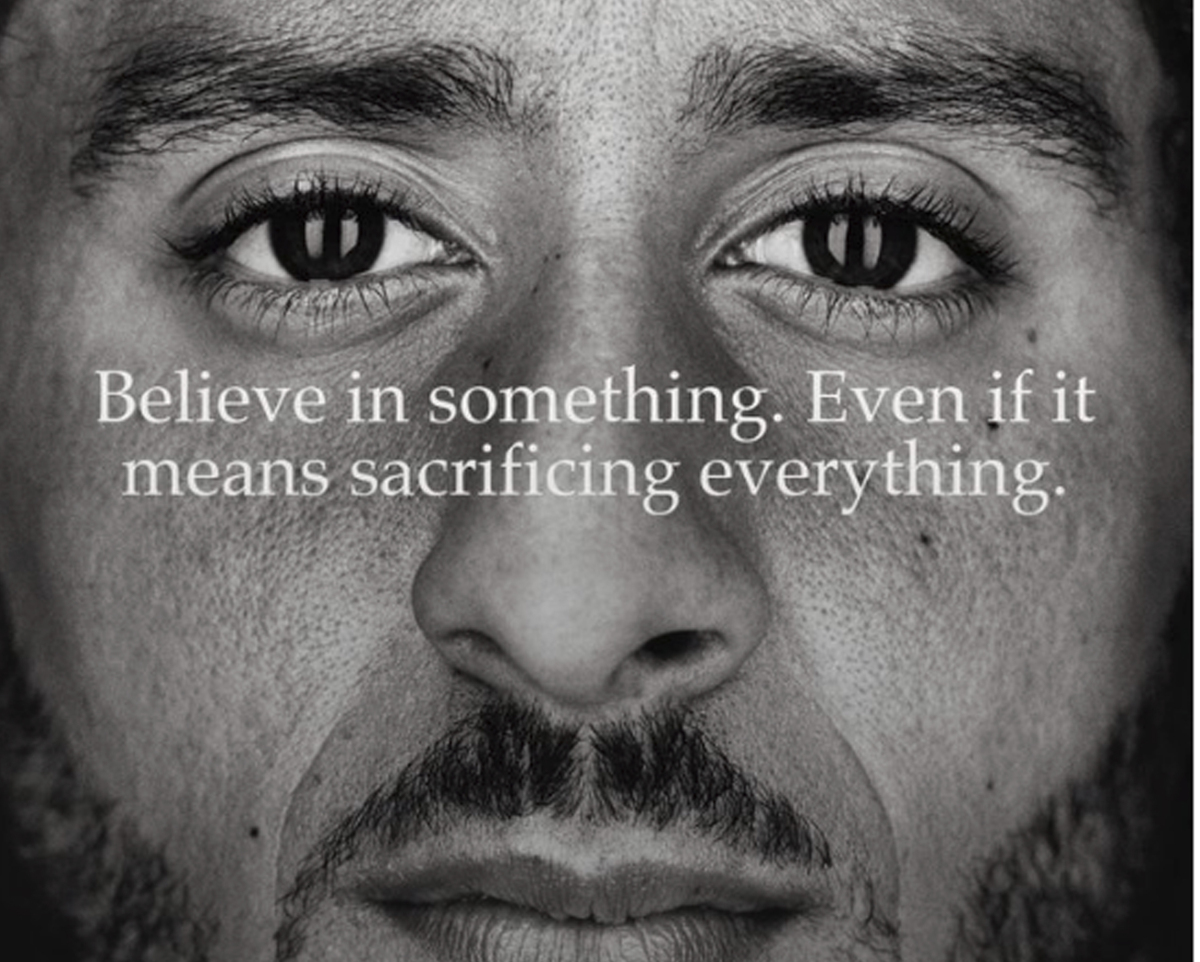The controversy surrounding Nike’s new Colin Kaepernick ad can’t be a surprise to the sportswear company. And in spite of the backlash, it’s probably pretty good for the brand.
In less than 24 hours since the former NFL player first revealed the spot on Twitter, Nike received more than $43 million worth of media exposure, the vast majority of it neutral to positive, according to Apex Marketing Group. That far outweighs the risk of alienating some customers over the controversial Kaepernick, who began the trend of kneeling for the national anthem to protest racism and police brutality in the U.S., said Bob Dorfman, a sports marketing executive at Baker Street Advertising.
What’s more, Dorfman said, the move sends a strong signal to its current roster of athletes and positions Nike as a savvy risk-taker. “It’s not a move that any company can make, but for Nike it’s definitely smart business,” Dorfman said.
A Nike spokeswoman didn’t immediately respond to a request for comment.

The campaign is just the first step in Nike’s new partnership with Kaepernick, an extension of a deal he’s had with the company since he entered the NFL in 2011, even though he hasn’t been on an NFL roster since 2016. The ad features his face along with the slogan “Believe in something. Even if it means sacrificing everything.”
The image immediately drew the ire of those who view Kaepernick – and others who joined him in protest – as selfish millionaires who disrespect America. Some posted videos of themselves burning Nike shoes and apparel or cutting the swoosh logo off their clothing.
Those praising the ad include former CIA Director John Brennan, former Iranian President Mahmoud Ahmadinejad, and fellow Nike endorser Serena Williams. One sports gambling site published betting lines for Nike’s stock price at the end of the month.
President Trump, one of the most outspoken opponents of the players’ protests, was conspicuously quiet.
“Nike is, at the same time, one of the world’s best product companies and one of the world’s best marketing companies,” said Simeon Siegel, a senior retail analyst at Nomura Instinet. “This has been their strength. They understand impressions, they understand brand image, perhaps as good, if not better, than anyone.”
The company also knows its customers. Two-thirds are younger than 35, and it’s an ethnically diverse consumer base, according to NPD Group.
“Nike cares most about the category influencers and tastemakers, nearly all of whom will embrace their decision,” said Howe Burch, the former head of U.S. marketing for Reebok. “They know they will lose some customers short-term, but not the kind of customers that really drive their business.”
Supporting disruptive athletes has long been a part of Nike’s marketing, dating to the early 1970s and runner Steve Prefontaine, the company’s first athlete endorser.
Last month, when the organizers of the French Open banned an outfit worn by long-time Nike athlete Serena Williams, the company tweeted, “You can take the superhero out of her costume, but you can never take away her superpowers.”
As part of the new campaign, the company plans to release a Kaepernick-inspired shoe and T-shirt and will donate money to the quarterback’s “Know Your Rights” educational campaign, according to The New York Times.
Nike’s renewed partnership with Kaepernick might create some tension between the company and the NFL. Nike has also been the official uniform and sideline apparel supplier for the NFL since 2012, a partnership recently extended through 2028.”It’s a little surprising that they would take this position as the official supplier to the NFL,” Burch said. “But they’ve never been uncomfortable being contrary.”
The quarterback is suing the league, accusing its owners of colluding to keep him out of the league. Last week an arbitrator said Kaepernick had enough evidence to take the suit to trial.
Comments are no longer available on this story